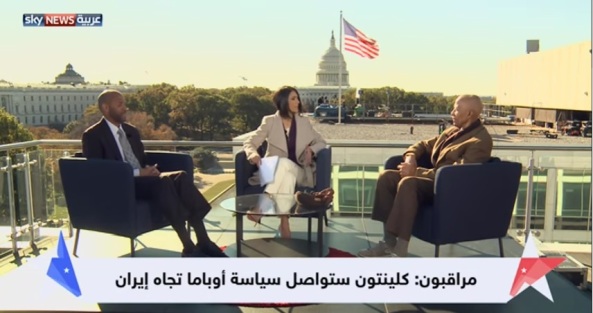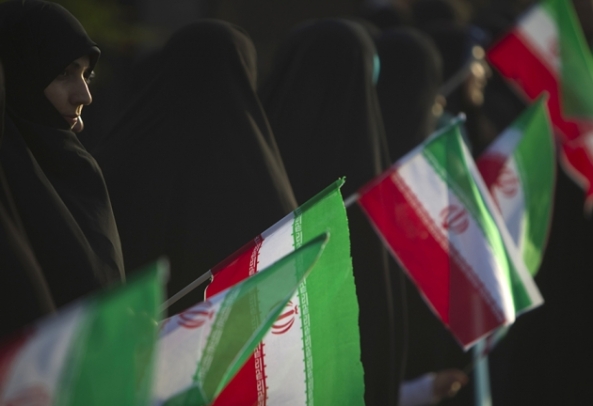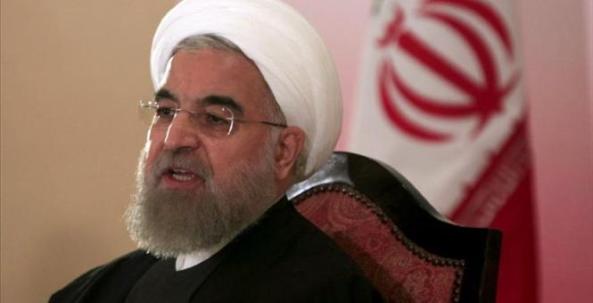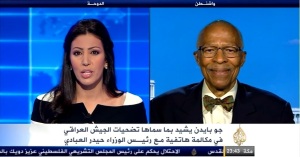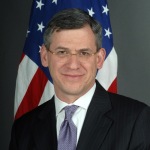
Coordinator for Counterterrorism, Department of State, Ambassador Daniel Benjamin
CLICK HERE FOR THE ORIGINAL POST
WASHINGTON, July 17, 2012 /PRNewswire-USNewswire/ — On 17 July 2012, the Iran Policy Committee (IPC) issued a press release. A State Department teleconference on 6 July 2012 prompted the release. Briefing the media were Coordinator for Counterterrorism, Ambassador Daniel Benjamin as well as Special Advisor to the Secretary on Camp Ashraf, Ambassador Daniel Fried. They briefed on the situation at Camp Ashraf, Iraq and the Mujahedeen-e-Khalq (MEK) designation. Developments over the past few days also stimulated the release.
Regarding human rights, Ambassador Benjamin stated, “The Iraqi Government and the United Nations continue to encourage the secure, humane relocation of residents to Hurriya [Liberty] for refugee status determinations by the United Nations High Commissioner for Refugees.” Benjamin added that because no other convoys of the residents of Camp Ashraf have relocated to Liberty since early May, “…the patience of the Iraqi Government is wearing thin.”
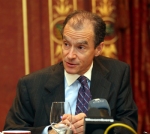
Special Advisor to the Secretary of State on Camp Ashraf, Ambassador Daniel Fried
Three former U.S. military officers of the IPC issued a joint statement taking issue with Ambassador Benjamin’s assertions about Baghdad and the UN encouraging secure and humane relocation: Lt. Gen. Tom McInerney (Ret), former assistant vice chief of staff, U.S. Air Force; Maj. Gen. Paul Vallely, (U.S. Army (Ret), former Deputy Commanding General, U.S. Army, Pacific; and Captain Charles “Chuck” Nash, U.S. Navy (Ret).
McInerney, Vallely, and Nash stated, “As former members of the U.S. military, we are concerned that Ambassador Benjamin’s statement will be read as a signal by Baghdad to launch a third attack against Iranian dissidents in Ashraf. Based on IPC research, we believe the Government of Iraq is engaged in serious violations of the human rights of Iranian dissidents in Ashraf and Liberty, Iraq. With the acquiescence of U.S. diplomats, dissidents’ rights as asylum seekers in their quest for refugee status are being violated on a systematic basis by Baghdad.”
Founder and President, Global Initiative for Democracy and former Freedom House Executive Director, Bruce McColm joined Professor Raymond Tanter, President of the IPC and former member of the National Security Council staff in the Reagan-Bush administration to comment on the situation of the dissidents in Ashraf and Liberty.
Ambassador Fried described the relocation of the residents of Camp Ashraf to Camp Liberty as “successful,” because during the transfer there were no “roadside bombs or attacks.” Ambassador Fried added, “I’m more impressed by the progress that has been made than concerned by the problems that remain. This is Iraq…we’re doing all right so far.”
Tanter said, “Such a statement by Fried is in stark contrast to remarks of 71 Members of the Iraqi parliament, who find, ‘Conditions at Liberty are far from humane and have every character of a forced relocation.'”
Tanter stated, “On 30 June 2012, the Deputy Prime Minister and General Secretary of the Iraqi National Movement informed the UN Secretary General that Camp Liberty was a ‘prison’ for the residents because they are collectively punished with their deprivation from basic humanitarian needs at the behest of the Iranian regime.”
On the basis of IPC research, McColm pointed out examples of necessary equipment to ensure basic human rights, especially for the disabled and to solve the water shortage in Liberty:
Transfer of specially-designed vehicles and specially-designed trailers for the disabled from Ashraf to Liberty and about 50 passenger cars, which would mean one car for about every 40 residents, a minimum in the hot weather for wounded and disabled residents
Permission for construction, including the building of pavements, porches, canopies, ramps, special facilities for the disabled, and permission to build green areas and recreational facilities
Removal of large power generators owned by the residents from Ashraf to Liberty, an adequate number of forklifts to Liberty, and ability to sell their movable and immovable assets in Ashraf to fund their relocation and resettlement abroad
“Having the residents to deliver water on a daily basis from 12 kilometers away by tankers was not a way to meet minimum humanitarian needs,” said McColm.
McColm also stated, “Connecting Liberty to a municipal water network, which was repeatedly promised by Iraqi officials and confirmed by the State Department and UN representatives, would be one solution to the water shortage problem.”
“To improve the life support infrastructure of Camp Liberty to an acceptable level is an absolute necessity for the State Department to live up to its promises made to every resident of Camp Ashraf and deprive Iran from its desire to wear down its opposition into submission in prison-like conditions at Camp Liberty,” said IPC president, Professor Raymond Tanter.
With respect to the terrorist designation of the MEK, on 6 July 2012, Ambassador Benjamin said, “With such a [violent] history, cooperating fully with the UN’s efforts in Iraq would be a tangible demonstration that the MEK has left its violent past behind and that it no longer retains the capability and intent to engage in acts of terrorism.”
Tanter stated, “IPC research shows that linkage of designation of the MEK to non-statutory criteria, such as cooperation in Iraq, is not in accord with the June 2012 Federal Appeals Court ruling ordering the Secretary of State to make a determination on the status of the MEK by October 2012; the Court ignored or rejected such linkage when presented by the State Department representative in briefs and oral argument prior to the June ruling.”
In addition, Tanter said, “Legal criteria for inclusion on the Foreign Terrorist Organizations list are that a group must be a foreign organization; engaged in terrorist activity or retain the capability as well as intent to engage in terrorist activity; and that activity or terrorism must threaten the security of U.S. nationals or its national security. Thus, cooperation in a relocation process is not a legal criterion for designation or continued listing.”
Tanter also stated, “The Intelligence Reform and Terrorism Prevention Act of 2004 holds that even if an organization is engaged in terrorist activities or terrorism or retains the capability and intent to do so, national security considerations may warrant removal from the terrorist list. The law, however, does not provide for the reverse—that is, maintaining a designation for non-terrorist reasons. Relisting the MEK because of alleged noncooperation in Iraq would be an example of a non-statuary rationale and legally impermissible.”
McInerney, Vallely, Nash, McColm, and Tanter concluded, “Violations of the human rights of Iranian dissidents in Iraq and linkage of their relocation within Iraq to what several national and international courts have found to be an unwarranted terrorist designation of the organization to which they belong—the MEK—is a recipe for another violent crackdown by Iraq on the Iranian oppositionists. As the 20 July unilateral Iraqi deadline for perhaps forcibly evacuating the remaining dissidents from Ashraf to Liberty approaches, the international community has a responsibility to pressure Baghdad to improve humanitarian conditions so they can safely relocate within Iraq as prelude to humane resettlement in friendly countries.”
